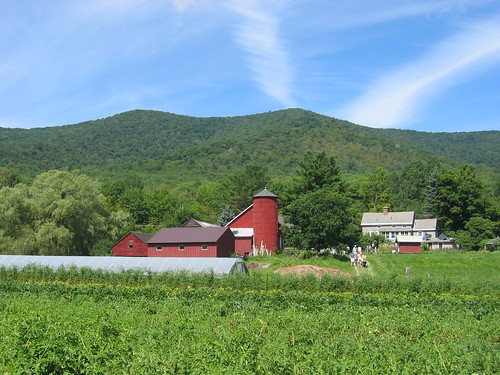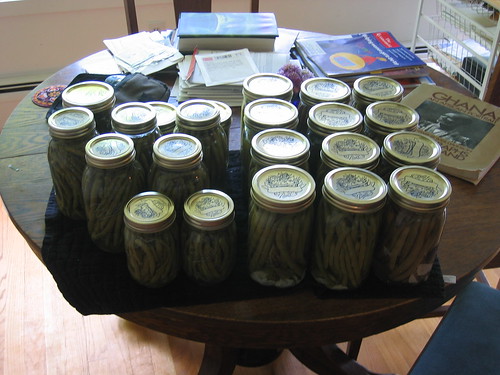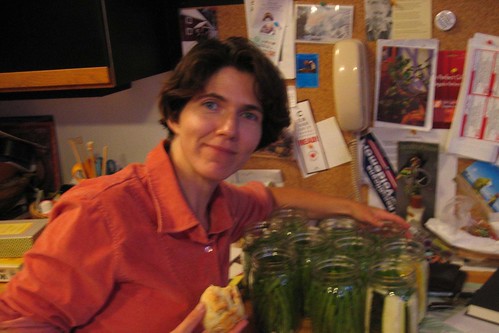Slingshot: Meet the Palestine Lyrical Front
In a pile of recent (terrific!) posts on Roba Al-Assi’s blog, “And Far Away” (don’t miss the one about her pink hair) is a great post about the rise of hip hop culture in Jordan and throughout the Middle East.
Roba says that she “got” the importance of hiphop once she started listening to Palestinian rappers, like the crews featured in the upcoming documentary “Slingshot”. Featuring ten crews united under the banner of “The Palestinian Lyrical Front”, the documentary follows Palestinian MCs from their homes to the stage, around their neighborhoods in Palestine and Israel. (The five minute trailer is a must-see.)
Roba points to Yazan Malakha’s blog, which includes more information about the film, the music and the lyrics, including downloadable mp3 of several tracks from DAM and Iron Sheik.
Musically it’s a mixed bag – Iron Sheik rap in English over minimal, electronic beats, which makes it easier to hear the lyrics, which include rhymes I’ve never heard in hiphop before:
Zionism called for a Jewish homeland
but they picked Palestine as a land with no man
one major flaw with all of this –
they forgot the indigenous populus, from Olive Trees

Photo by Hanan Cohen
DAM’s tracks are a rich mix of voices and samples, featuring male and female MCs and have more for the melodically inclined to hang onto. (The name’s an acronym – “Da Arab MCs”, though the fact that “dam” translates as “blood” in Hebrew (and in Arabic?) can’t be a coincidence…) The video for “Born Here” (Windows Media, mp3 here, lyrics here) took me right back to the years I most loved American hiphop – the “golden age” – when BDP and Public Enemy added a political edge to party music, but didn’t take it to the absurdist cliff “gangsta” rappers drove it over.
Like Kris Parker or Chuck D, these kids are angry. And while it makes their lyrics hard for some people to listen to or read, it’s makes their tracks very, very real. When Kris recorded “Sound of Da Police” with verses like this:
The overseer rode around the plantation
The officer is off patroling all the nation
The overseer could stop you what you’re doing
The officer will pull you over just when he’s pursuing
The overseer had the right to get ill
And if you fought back, the overseer had the right to kill
The officer has the right to arrest
And if you fight back they put a hole in your chest!
(Woop!) They both ride horses
After 400 years, I’ve _got_ no choices!
…I didn’t have to agree with him that it was a fair comparison between policemen and slave overseers. (And I didn’t.) But I did have to acknowledge that the man was pissed off and that he meant what he was saying. And I had to acknowledge that there were people listening to the track who felt the way Kris felt. (And that they probably weren’t longhaired white boys in rural Massachusetts.)
And whether or not my interpretation of the situation in Palestine and Israel is the same as that of these MCs, I’m glad they have the chance to say it and that I have the chance to hear it.
Update:
Hanan Cohen, webmaster for Shatil, a progressive Israeli organization that “Promote[s] Jewish-Arab equality and coexistence”, has written in with a great comment. Shatil organized the “Born Here” tour that featured DAM and other Israeli and Palestinian crews – he shares his backstage and onstage photos from the tour. Thanks, Hanan!











